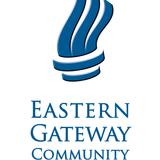- Kent State University's eight-campus network, one of the largest regional systems in the country, serves both the development of a true living/learning approach at the Kent Campus and regional needs on seven other campuses throughout Northeast Ohio. The Kent Campus provides the resources and facilities of a large, diverse university, while the Regional Campuses - Ashtabula, East Liverpool, Geauga, Salem, Stark, Trumbull and Tuscarawas - offer the friendly, casual atmosphere of small liberal arts colleges.
School Highlights
Kent State University at East Liverpool serves 1,955 students (2% of students are full-time).
The college's student:teacher ratio of 38:1 is higher than the state community college average of 23:1.
Minority enrollment is 20% of the student body (majority Black), which is less than the state average of 38%.
Quick Stats (2025)
- Enrollment: 1,955 students
- In-state tuition: $5,664
- Out-state tuition: $13,624
- Student:teacher ratio: 38:1
- Minority enrollment: 20%
- Source: Integrated Postsecondary Education Data System (IPEDS)
School Overview
The teacher population of 52 teachers has stayed relatively flat over five years.
Kent State University at East Liverpool
(OH) Community College Avg.
Carnegie Classification
Baccalaureate/Associate's Colleges: Associate's Dominant
Baccalaureate/Associate's Colleges: Mixed Baccalaureate/Associate's
Institution Level
Four or more years
At least 2 but less than 4 years
Institution Control
Public
Private not-for-profit
Total Faculty
52 staff
93 staff
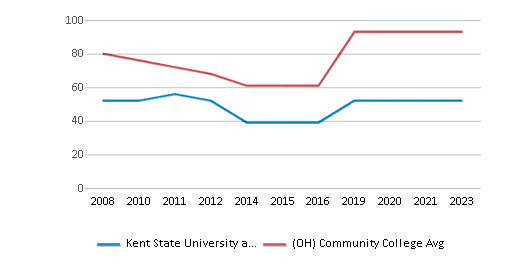
School Calendar
Student Body
The student population of Kent State University at East Liverpool has grown by 68% over five years.
The student:teacher ratio of 38:1 has increased from 23:1 over five years.
The Kent State University at East Liverpool diversity score of 0.35 is less than the state average of 0.58. The school's diversity has grown by 21% over five years.
Total Enrollment
1,955 students
533 students
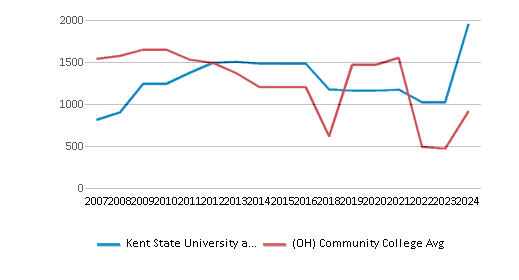
Student : Teacher Ratio
38:1
23:1
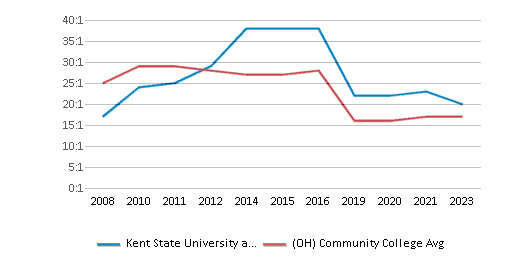
# Full-Time Students
45 students
397 students
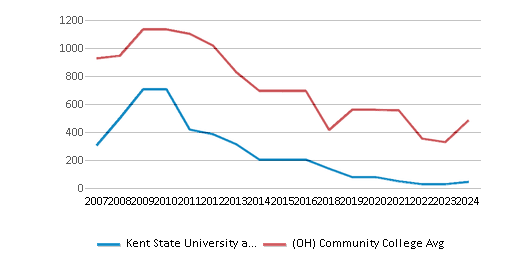
# Part-Time Students
1,910 students
360 students
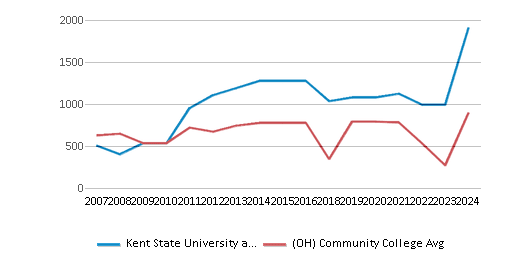

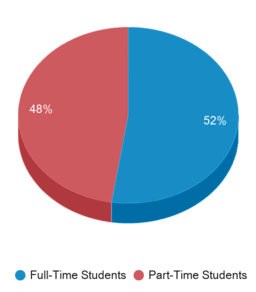
# Enrollment Undergraduate
195 students
308 students
# Full-Time Undergraduate Students
45 students
385 students
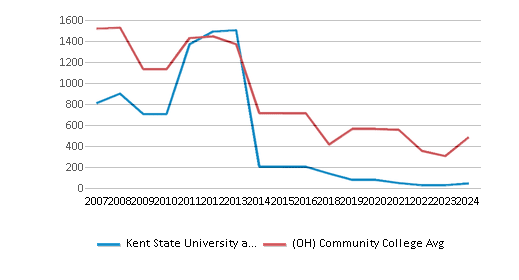
# Full-Time Graduate Students
n/a
10 students
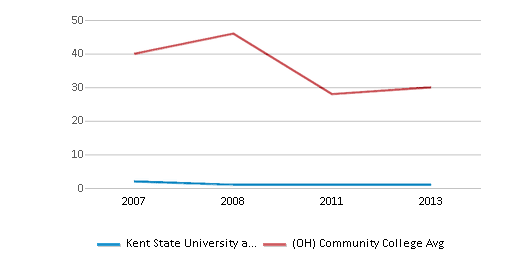
# Part-Time Undergraduate Students
1,910 students
380 students
# Part-Time Graduate Students
3 students
3 students
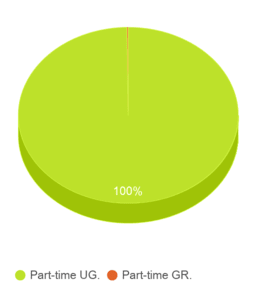
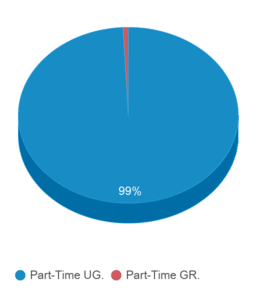
Total Dormitory Capacity
n/a
425 students
% American Indian/Alaskan
n/a
n/a
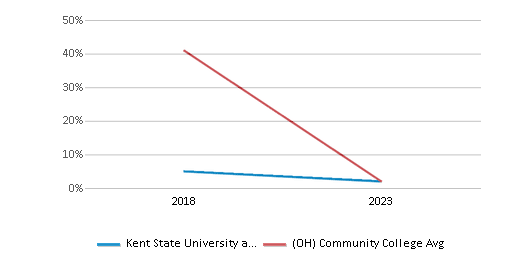
% Asian
2%
4%
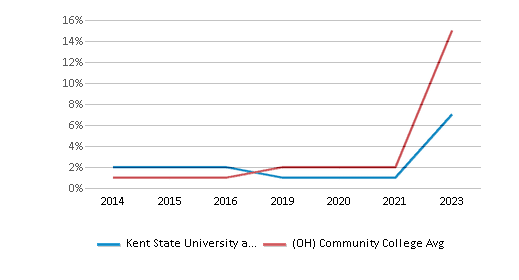
% Hispanic
3%
6%
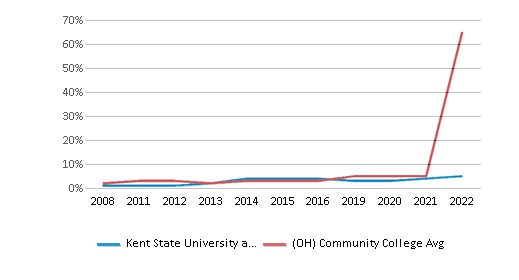
% Black
7%
15%
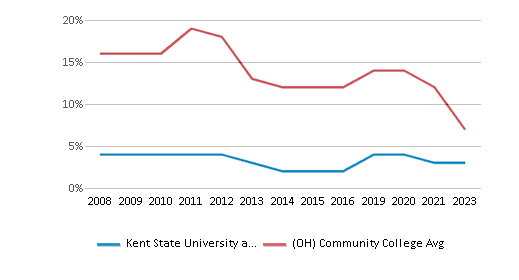
% White
80%
62%
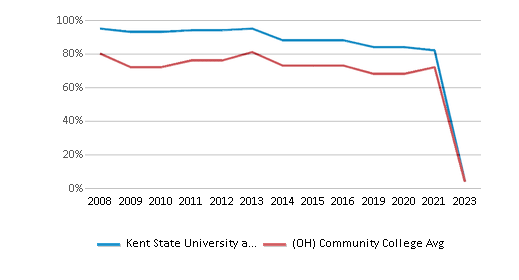
% Hawaiian
n/a
2%
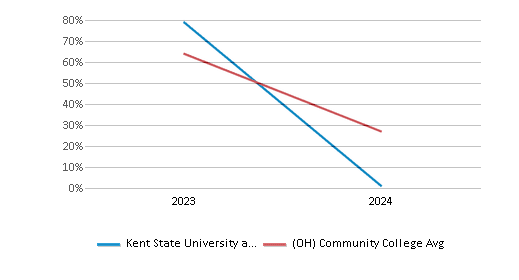
% Two or more races
3%
4%
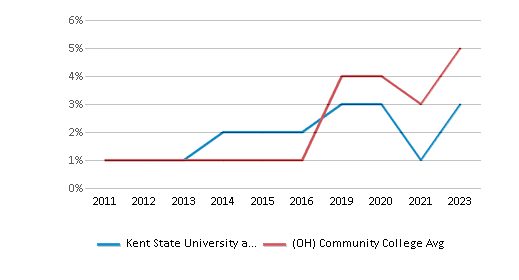
% Non Resident races
1%
1%
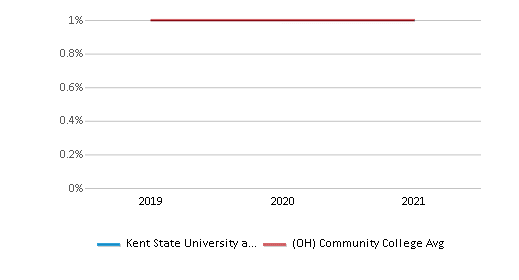
% Unknown races
4%
6%
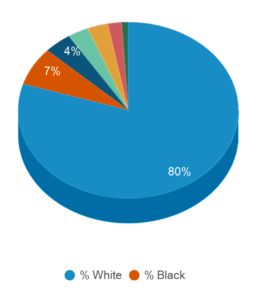
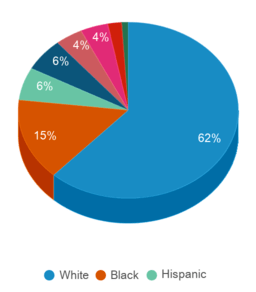
Diversity Score
0.35
0.58
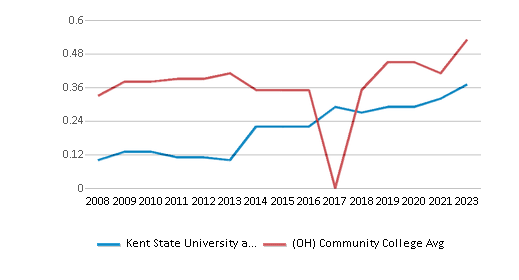
College Completion Rate (Students who graduate in less than 4 years)
12%
23%
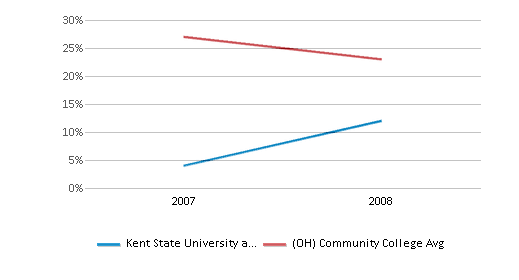
College Completion Rate (Students who graduate in 4 years or more than 4 years)
0.1385%
0.2197%
Average Graduate Earnings (10 Years)
$39,700
$31,900
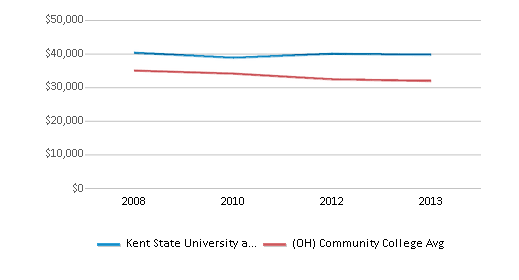
Tuition and Acceptance Rate
The public in-state tuition of $5,664 is more than the state average of $5,023. The in-state tuition has declined by 9% over four years.
The public out-state tuition of $13,624 is more than the state average of $10,825. The out-state tuition has declined by 9% over four years.
In-State Tuition Fees
$5,664
$5,023
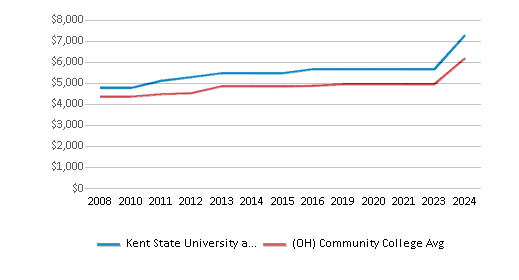
Out-State Tuition Fees
$13,624
$10,825
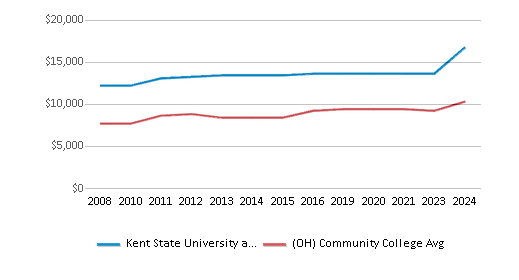
% Students Receiving Some Financial Aid
96%
88%
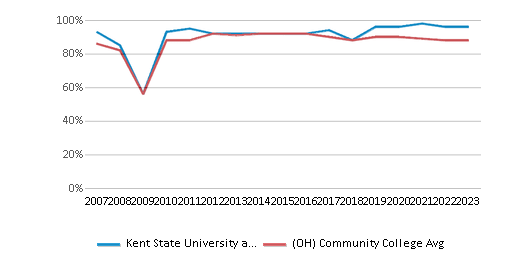
Median Debt for Graduates
$25,000
$18,500
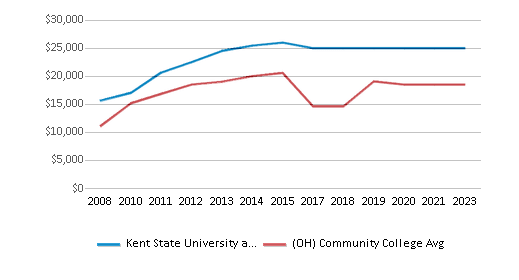
Median Debt for Dropouts
$8,750
$6,500
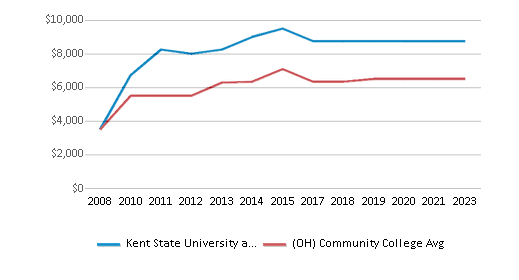
Acceptance Rate
n/a
73%
SAT Reading
n/a
460
SAT Math
n/a
475
SAT Writing
n/a
465
ACT Composite
n/a
21
ACT English
n/a
20
ACT Math
n/a
20
Source: 2024 (or latest year available) Integrated Postsecondary Education Data System (IPEDS)
School Notes
- Since its founding as a teacher-training school in 1910, Kent State has become an engine for economic, cultural and workforce development in the region and beyond as one of the premiere Ohio colleges. The university also has earned acclaim for applying new knowledge to address the needs of the communities it serves and society as a whole. Established in 1965, Kent State's East Liverpool Campus occupies a downtown site overlooking the Ohio River and includes the Main Building, Memorial Auditorium, Mary Patterson Building and a Commons. Kent State University East Liverpool Campus offers classes and coursework leading to 12 associate degrees and seven bachelor's degrees, including one of Ohio's occupational therapy assistant programs, computer technology and physical therapy assistant training. With small class sizes, available counseling and tutoring to help students excel, and over 200 academic paths that can be started on campus and completed within the Kent State system, our southeastern Ohio campus is a convenient center for learning and career enhancement. Kent State University is accredited without reservation by the North Central Association of Colleges and Schools.
Frequently Asked Questions
How much does Kent State University at East Liverpool cost?
Kent State University at East Liverpool's tuition is approximately $5,664 for In-State students and $13,624 for Out-State students.
In what neighborhood is Kent State University at East Liverpool located?
Kent State University at East Liverpool is located in the Downtown neighborhood of East Liverpool, OH.
Recent Articles

Obtaining Your Bachelor's Degree at a Community College
Explore the evolving landscape of community colleges offering bachelor's degrees, addressing affordability, accessibility, and workforce needs.

A to Z of Community College Certificates and Courses
From business and healthcare to technology and skilled trades, the article showcases the breadth of options available to students seeking to enhance their knowledge, develop new skills, or pursue career advancement.

What is a Community College?
This comprehensive guide explains what a community college is, its history, and its role in higher education. It covers the types of programs offered, differences from four-year colleges, benefits of attending, and important considerations for prospective students, providing valuable insights for those exploring educational options.

